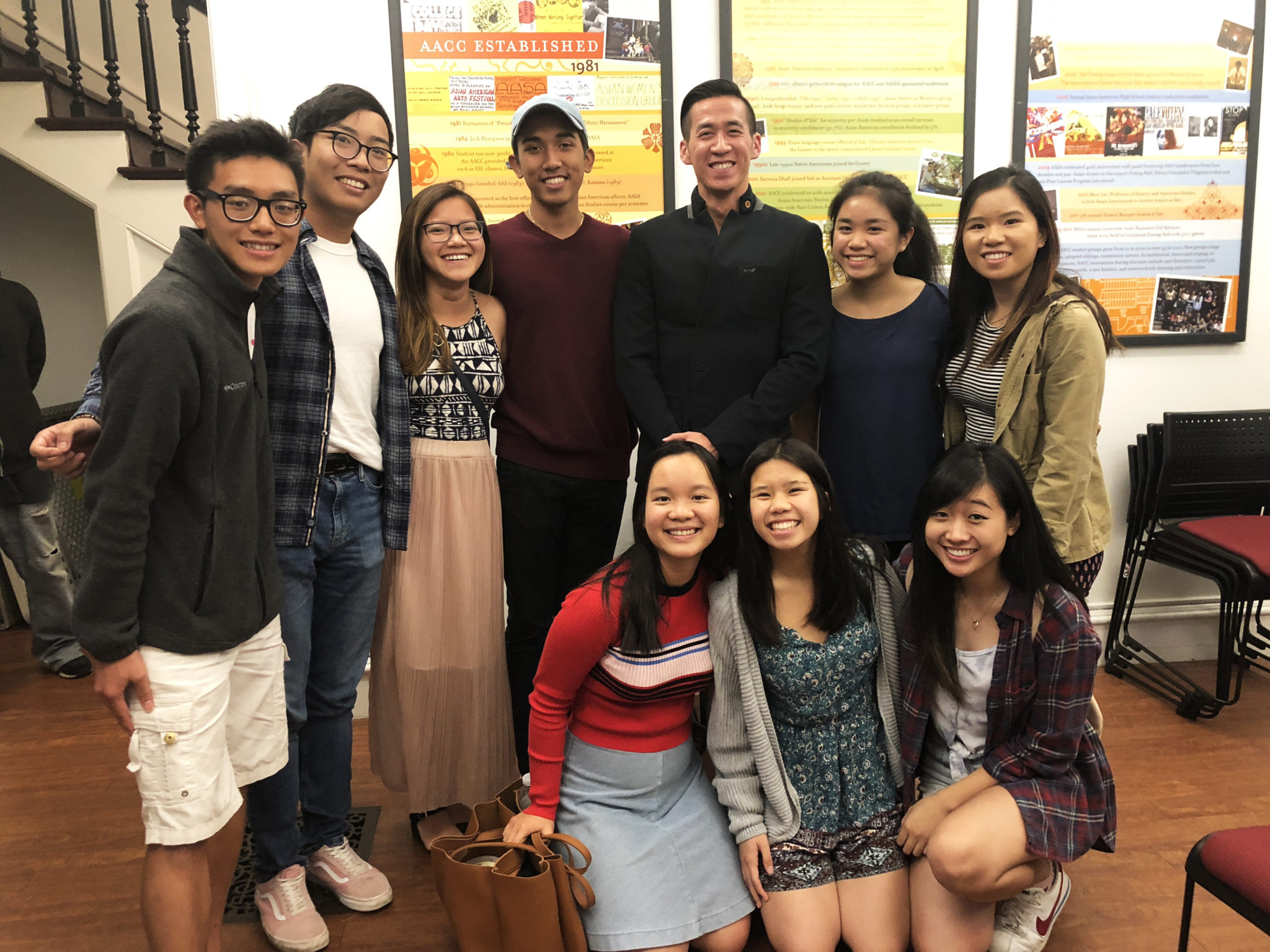
Less than two months after his release from Vietnamese prison, Will Nguyen ’08, who was arrested in July during protests in Ho Chi Minh City, returned to campus Saturday to discuss his activism and experience in Vietnam at a talk at the Asian American Cultural Center.
To a crowd of 50, Nguyen recounted his arrest for his participation in a protest against the creation of special economic zones in Vietnam for foreign investors as well as recent cybersecurity legislation that gave the Vietnamese government more control over the internet. Activists voiced concerns that the economic zones could spur Chinese incursions on the country’s territory. Nguyen said that he was most passionate about the cybersecurity legislation, which he believes infringes on free speech. He discussed his journey from Yale College, where he was a member of the Vietnamese Students Association, the same group that co-sponsored his talk, to studying abroad in Singapore and Saigon after graduation.
At the event, Nguyen said he returned to Vietnam this past spring, where he learned of plans to protest Chinese economic influence and restricted free speech through regulation of social media outlets. The day of his arrest, he recalled pushing through police lines to let through his fellow protestors.
“I didn’t earn American citizenship, but if I [can] use it as a shield to push through barriers, I absolutely [will],” Nguyen said.
But despite his arrest, Nguyen said he does not harbor any resentment.
“I tried to build, during my time in custody, sympathy for the other side,” Nguyen said: “I don’t hate anybody.”
While in prison, he made a point to talk to his interrogators, his guards and his fellow prisoners about the controversial topics he was protesting.
At the protest, Nguyen was beaten and arrested, he recalled, adding that he spent three days in interrogation, was forced to publicly confess to illegal activity on Vietnamese television stations and lived in prison for one month. During that time, his sister and many members of the Yale community rallied behind him. They ran an effective social media campaign, and Secretary of State Mike Pompeo ultimately secured his deportation from Vietnam.
Many members of the Vietnamese Students Association, however, were disappointed that University President Peter Salovey and the Yale administration did not issue a public statement, said the association’s president Linh He ’20. Salovey did not issue a public call for his release.
The students association also refrained from issuing a statement or advocating for Nguyen’s release, in part because of concerns for the safety of a current undergraduate who was also in Vietnam at the time, said He. He expressed some regret for the organization’s inaction on the issue.
“I also feel like I am politically apathetic in some ways,” she said. “Especially during the time, I was really hesitant to campaign for him. I didn’t really know where to start. But I think [Nguyen] made some good points about actually getting involved and speaking up.”
Vy Tran ’21, the event moderator and political chair of Vietnamese Students Association, said that after the event, she and Nguyen discussed Vietnamese-American generational gaps, the effectiveness of social media and the purpose of protesting.
Tran related to Nguyen’s struggles with identity and desire to connect with Vietnam. Nguyen said that he chose to address his own privilege of American citizenship by using it to enact change and help others. In response to questions about how he grapples with his family’s heritage and strong political stances, Nguyen said his older family members were upset when he publicly denounced President Trump, but they were ultimately understanding.
He said that the Vietnamese-American generational gap is also clear within Vietnam, citing the willingness of young police officers to let Nguyen and other protestors pass the police barricade despite orders from their older superiors.
“It’s one thing to see older generations come and talk about what they do, but it’s another thing to see someone who has lived the same experiences as us but has also continued on to incredible political work,” said Tran.
Nguyen said that he is currently working on a book in an effort to document his experiences, while also focusing on readjusting to normal life.
The event was co-sponsored by the Vietnamese Students Association, the Asian-American Cultural Center and the Council on Southeast Asian Studies at Yale.
Lindsay Daughtery | lindsay.daugherty@yale.edu
Correction, Oct. 1: A previous version of this article incorrectly attributed quotes and information to former ViSA president Emma Dinh ’19. In fact, current ViSA President Linh He ’20 is responsible for the reported quotations.







